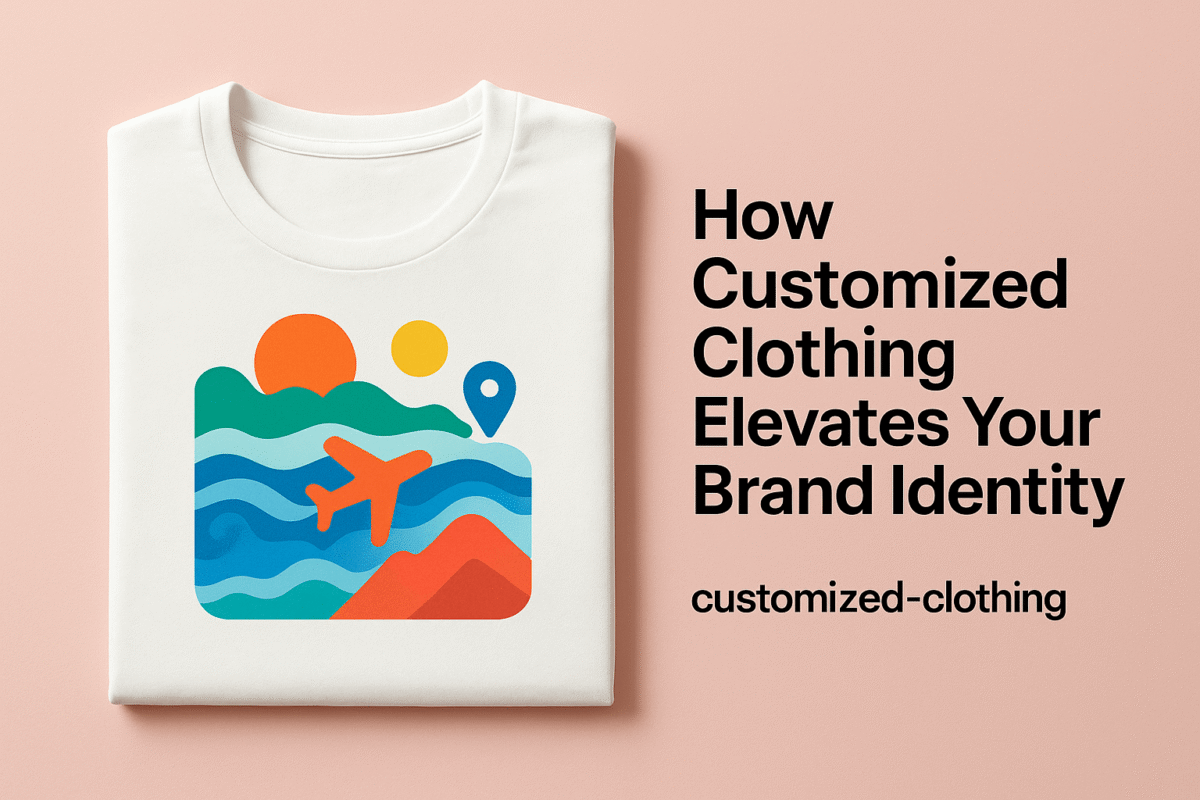Customized Clothing
How Customized Clothing Elevates Your Brand Identity
The Power of Personalized Branding
It is increasingly essential to make an impact in the competitive industry of today. Whether you run a small business, a fast-growing startup, or a global enterprise, your brand identity shapes how customers perceive you. It’s the character of your company, not just a logo or phrase. One increasingly popular way to strengthen that identity is through customized clothing.
From personalized uniforms to branded merchandise, custom clothing gives businesses a chance to transform their brand into something tangible, memorable, and recognizable. In this article, we’ll explore why brand identity matters, how personalised clothing enhances recognition, real-world success stories, and practical tips to get started.
Why Brand Identity Matters
Your brand identity is the emotional and visual connection customers have with your business. It represents your values, your mission, and the promise you make to customers. Without a strong identity, businesses risk blending into the crowd.
Think about it, when employees wear generic, mismatched attire or when promotional giveaways feel like afterthoughts, it sends a mixed message. On the other hand, customized clothing communicates professionalism, unity, and confidence. It shows that your business pays attention to details and takes pride in presentation.
In short, your brand identity sets you apart. And the right clothing can bring that identity to life.
How Custom Clothing Enhances Brand Recognition
Superior materials and embroideries convey to clients your appreciation for quality and longevity. Humans are highly visual; consistent exposure to brand elements (logos, colors, slogans) makes them stick.
Here’s how custom clothing works as a powerful branding tool:
- Consistency in Appearance: When staff wear branded uniforms, they embody the company’s image. This uniformity makes your brand more recognizable in retail stores, restaurants, events, and even online videos.
- Walking Advertisements: Employees, team members, or customers who wear branded apparel essentially become mobile billboards. Whether at a coffee shop or an industry event, your brand gets free exposure.
- Customer Trust: Consistency builds credibility. Seeing a polished, unified team in customized clothing reassures customers that they are dealing with a professional brand.
Simply put, when people see your brand consistently represented in clothing, it reinforces memory and fosters trust.
Real-World Examples of Brands Using Customized Clothing
Many companies, big and small, have harnessed the power of custom clothing to elevate their brand identity. Let’s look at a few recognizable examples:
- Starbucks: Their baristas are instantly identifiable by the iconic green apron. It is more than simply a piece of cloth; it is a universally acknowledged representation of warmth and reliability.
- Nike: Beyond selling sportswear, Nike outfits its sponsored athletes and staff in custom gear. In addition to producing powerful brand advocates, this strengthens the company’s dedication to performance and innovation.
- Local Restaurants & Startups: Smaller businesses often use branded t-shirts or hats for staff. Not only does this improve brand recognition, but it also creates a sense of team unity.
These examples highlight how businesses across industries, from coffee shops to sports giants, use personalised clothing as a strategic branding tool.
Tips for Businesses Implementing Customized Clothing
If you’re considering incorporating custom clothing into your branding strategy, here are some practical steps to get started:
1. Align With Your Brand Identity
Choose designs, colors, and fabrics that reflect your brand values. A luxury brand might opt for tailored blazers, while a fun, casual startup might go for graphic t-shirts.
2. Focus on Quality
Low-quality materials can send the wrong message. Superior materials and embroideries convey to clients your appreciation for quality and longevity.
3. Keep It Simple and Memorable
Avoid overcomplicating designs. A clean logo, consistent colors, and a clear message go a long way. Subtlety often feels more professional.
4. Consider Employee Comfort
Employees are more likely to wear and promote your personalised clothing if it’s comfortable. Select breathable fabrics, proper fits, and seasonal variations.
5. Leverage Events and Giveaways
Trade shows, conferences, or community events are perfect opportunities to showcase custom clothing. Branded t-shirts or caps as giveaways can extend your brand visibility far beyond your immediate audience.
6. Track ROI
Customized apparel isn’t just a cost, it’s an investment. Monitor the impact through brand recall surveys, customer feedback, or increased recognition at events.
Stand Out in a Crowded Market
Being able to stand out in a crowded market is crucial in a world when customers are inundated with marketing messages. Customized clothing offers a subtle yet powerful way to do this. Unlike internet advertisements that vanish after a scroll, branded clothing makes an impact.
Conclusion: Elevating Your Brand Through Customized Clothing
The power of personalised branding lies in consistency, recognition, and authenticity. Customized clothing transforms these principles into something tangible. Whether it’s uniforms that build team spirit, merchandise that spreads awareness, or stylish designs that resonate with customers, custom apparel ensures your brand is not just seen, but remembered.
By investing in custom clothing, businesses can strengthen their brand identity, create lasting impressions, and unlock a new level of recognition in their market. Start small, stay consistent, and watch how clothing becomes one of your most effective branding tools.





